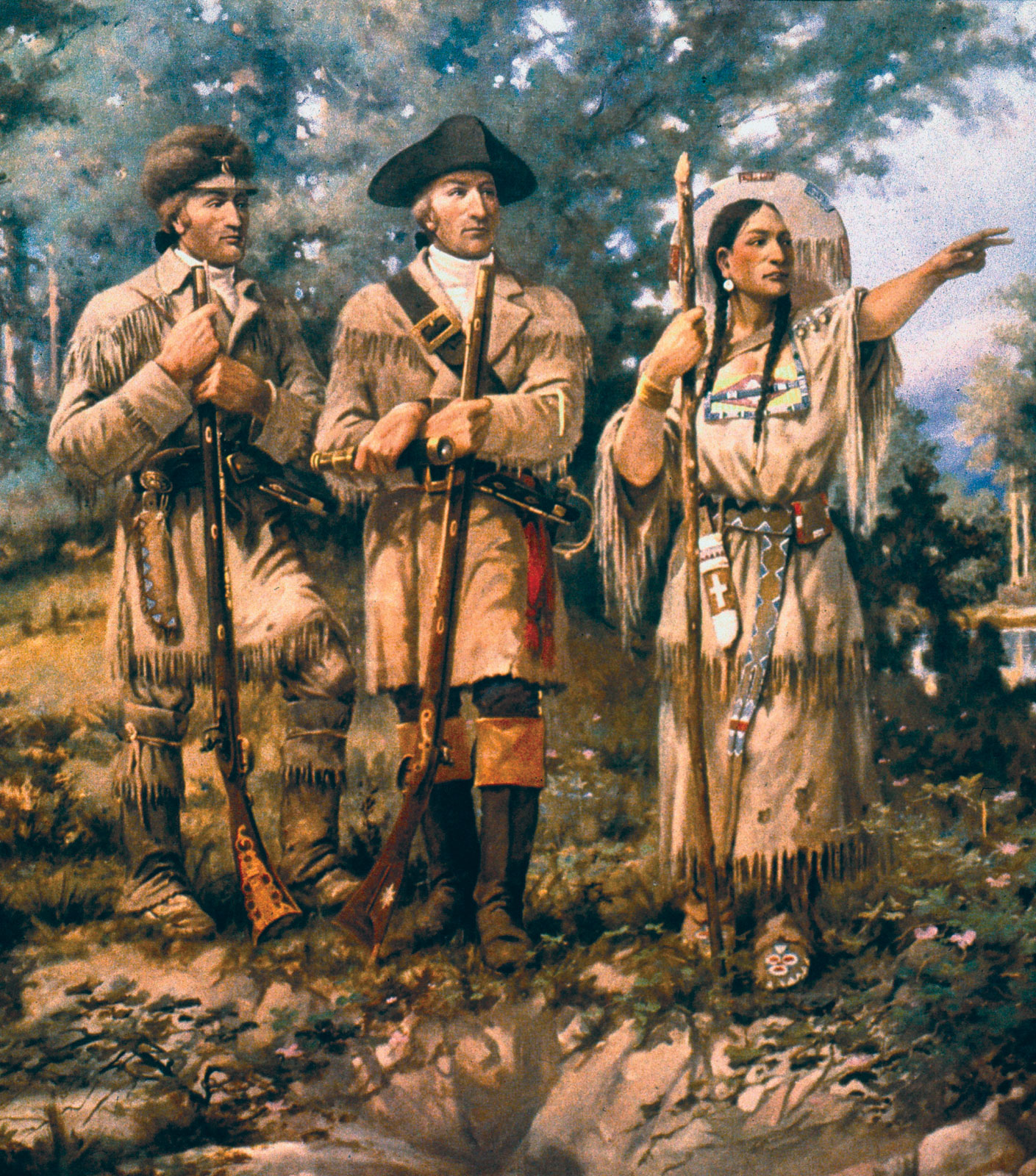"Sent by President Thomas Jefferson to find the fabled Northwest Passage, Meriweather Lewis and William Clark led the most important expedition in American history -- a voyage of danger and discovery from St. Louis to the headwaters of the Missouri River, over the Continental Divide to the Pacific. It was the United States first exploration of the West, and one of the nation's most enduring adventures." (Ken Burns)

Lewis & Clark's outbound route in red, inbound route in blue courtesy http://www.pbs.org/lewisandclark/inside/.
In 1803, only four roads crossed the Appalachian Mountains. Thomas Jefferson dreamed of a Northwest Passage, what he believed would "break open the wealth of North America" by opening up trade with the Orient. That year, the United States Congress approved Jefferson's "The Corps of Discovery" to the uncharted West. Led by Jefferson's secretary, Meriweather Lewis, and Lewis' friend, William Clark, and with $2500 worth of funding, the group set out for the Pacific.
The expedition required a lengthy list of supplies including compasses and sextants, rifles and gunpowder, tomahawks and tobacco, forceps and syringes. For a complete list, visit http://www.pbs.org/lewisandclark/inside/idx_equ.html.
The journey was an adventure for many of the 29 members of the expedition, an opportunity to feast their eyes on breathtaking beauty, on unsurpassed scenery. The expedition would also dispel many myths about the West. Jefferson's plethora of books on the subject at his Monticello home stated things like: the West was "a mass of erupting volcanoes; the Blue Ridge Mountains in Virginia were the continents highest. Another myth maintained that the West was full of "gargantuan woolly mastodons, seven-foot-tall beavers and friendly, slim-waisted buffalo". The group would have been disappointed to meet the real beavers. Maps of the west were equally misleading, depicting California "as an island" and the Rockies as "narrow and undaunting".
While the explorers revelled in the beauty of the West, they weren't prepared for its harsh winters. Privates Moses Reed and John Newman both had changes of heart. Reed, punished for desertion, was given 100 lashes on his bare back. Newman also received a court martial for "mutinous acts". When spring arrived, both men were set adrift down a river on a keel boat. Even so, most of the members of the expedition made it home safely.
Back in Washington DC, an event transpired which eclipsed the Lewis and Clark Expedition: the Louisiana Purchase. Jefferson was able to secure an 820,000 square-mile parcel of land, the Louisiana Territory, for $15 million. "In a single stroke, the size of the United States was doubled." America was on its way to becoming a continental nation, from sea to sea.

Sacagawea with Lewis & Clark at Three Forks courtesy
No comments:
Post a Comment